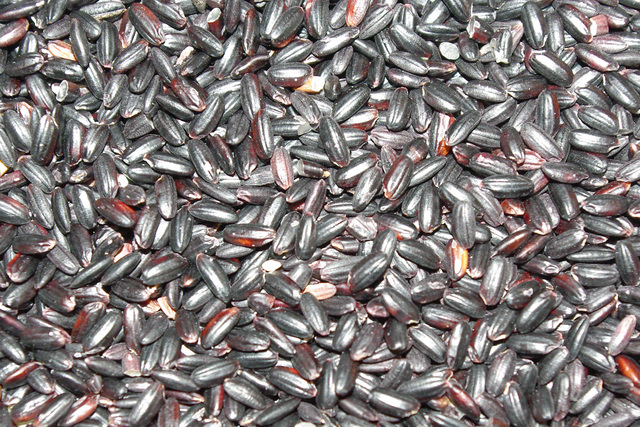I came late to whole grains—being brought up eating white rice at every meal. With the possible exception of rolled oats, most of the grains I encountered were hulled, bleached, sweetened and renutritionized before they hit my plate.A roommate once cooked a meal of kasha—buckwheat groats, chopped onions and carrots—one of my first exposures to vegetarianism. I got into brown rice while studying with Sensei Masahilo Nakazono in Santa Fe during the ’70s. Among the many things he taught were the benefits of macrobiotic nutrition. I began to include red aduki beans and brown rice in my diet, pressure cooked to sweetness and seasoned with soy sauce. I was too addicted to modern, Western foods to embrace the austerity of a macrobiotic diet, but I learned that there was a palette of ingredients I had yet to explore.Nowadays, there are plenty of whole grains—packaged and in bulk—in standard supermarkets, as well as my pantry. I keep buckwheat groats for kasha, quinoa for tabbouleh, steel-cut oats for hot cereal and baking. And I still keep short-grain white rice, but now it shares the shelf with brown, black, red and wild rices. Whole grains provide enough sturdiness to a dish to let me forego meat when I want a light meal. I find that leftovers generally freeze well, as with this recipe I modified from epicurious.com.
Mina's Dish
Send your restaurant tips, food events and other delicious tidbits to food@alibi.com




